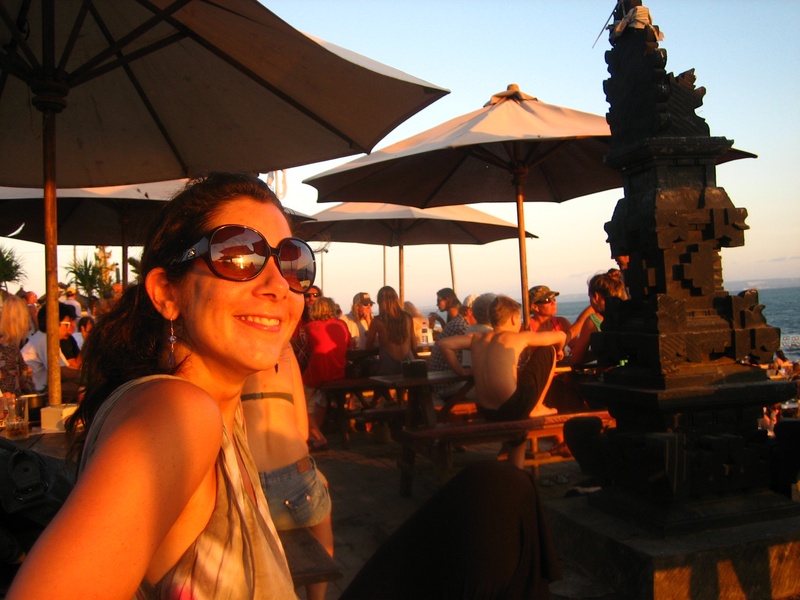
Elif Yavuz, a 33-year-old graduate of the Harvard School of Public Health, died on September 21 in a shooting in Nariobi, Kenya. She was a senior vaccines researcher with the Clinton Health Access Initiative and specialized in malaria.
Elif Yavuz, a graduate of the Harvard School of Public Health, will be remembered for her witty sense of humor, passion for her work, and desire to help the world, friends and colleagues said after Yavuz died in the Sept. 21 attack on a mall in Nairobi, Kenya.
Yavuz, who graduated from the School of Public Health in May, was killed alongside her partner Ross Langdon, an award winning architect. The two were expecting a child.
A memorial was held for Yavuz at the School of Public Health on Wednesday, with about two hundred colleagues and professors in attendance.
During a statement at the gathering, Dean of the School of Public Health Julio Frenk called on the attendees to carry Yavuz’s legacies forward into their own lives.
“We must remember Elif not by the way in which she died, but by the cause for which she lived,” Frenk said.
A 33 year-old native of the Netherlands, Yavuz had travelled Tanzania after graduating from the School of Public Health to work as a researcher for the Clinton Health Access Initiative. Yavuz was staying in Kenya in order to receive optimal medical care for the impending delivery of her baby, according to Frenk.
Friends and colleagues said Yavuz dedicated her life to helping those in need. After receiving her Masters of Arts from the Johns Hopkins School of Advanced International Studies, Yavuz later worked at the World Bank before enrolling at the School of Public Health.
In 2010, she travelled to Uganda to research malaria for her doctoral thesis.
During her first weeks in Luwero, Uganda, she lived in a one-room cement block with no furniture or toilets, according to Felix Lam, a graduate of the School of Public Health who worked alongside Yavuz. Lam also said Yavuz taught two of his classes in the Global Health and Population Department.
Lam said Yavuz spent her days and nights gathering data with her research team and correcting surveys on malaria treatment. She continued to work long hours through the weekends, Lam said, and on Saturdays the two would review surveys throughout the day.
“We would listen to ‘This American Life’ while we were numbering these surveys, and just talk and share stories,” he said.
Though Yavuz was hard working and thorough in her work, her friends and colleagues said she loved to lighten the mood with jokes and dancing.
Lam said he remembered on one occasion when, on a break from her project, Yavuz taught the Luwero village children Michael Jackson’s “Thriller” dance.
“Everyone knew her,” Lam said.
Yavuz’s thesis advisor in Uganda, School of Public Health professor Jessica L. Cohen, also said the global health student stood out in the her village. Yavuz often walked around Africa wearing heels and big flowers in her hair, Cohen said, and when Yavuz stepped off the plane in Uganda, she donned a flamboyant outfit, ready for work.
“She was definitely a unique person in her style and demeanor,” Cohen said. “She had a lot of grit.”
Heather E. Lanthorn, Corrina Moucheraud, and Pamela Scorza, students from the School of Public Health, said Yavuz was “fearless in her approach to life” in an emailed statement to The Crimson. Lanthorn, Moucheraud, and Scorza were friends of Yuvza, according to Lanthorn’s mother, Sue Anne.
“Her personality was outsized to her frame,” Lanthorn, Moucheraud, and Scorza said in the statement. “She made you want to work harder, play harder, dance harder.”
Yavuz is survived by her brother and her mother, with whom, Cohen said, Yavuz was very close. Yavuz’s family could not be reached for comment.
Though Lam said he will remember Yavuz as both a long-time mentor and an “absolutely brilliant” teaching assistant, he still remembers when she would bring snacks to class just to get her students excited about global health—even on a Friday.
“She loved what she did,” Lam said. “And she cared a lot about us.”
Read more in News
Hubel Remembered for Innovative Research, Dedication to Teaching












